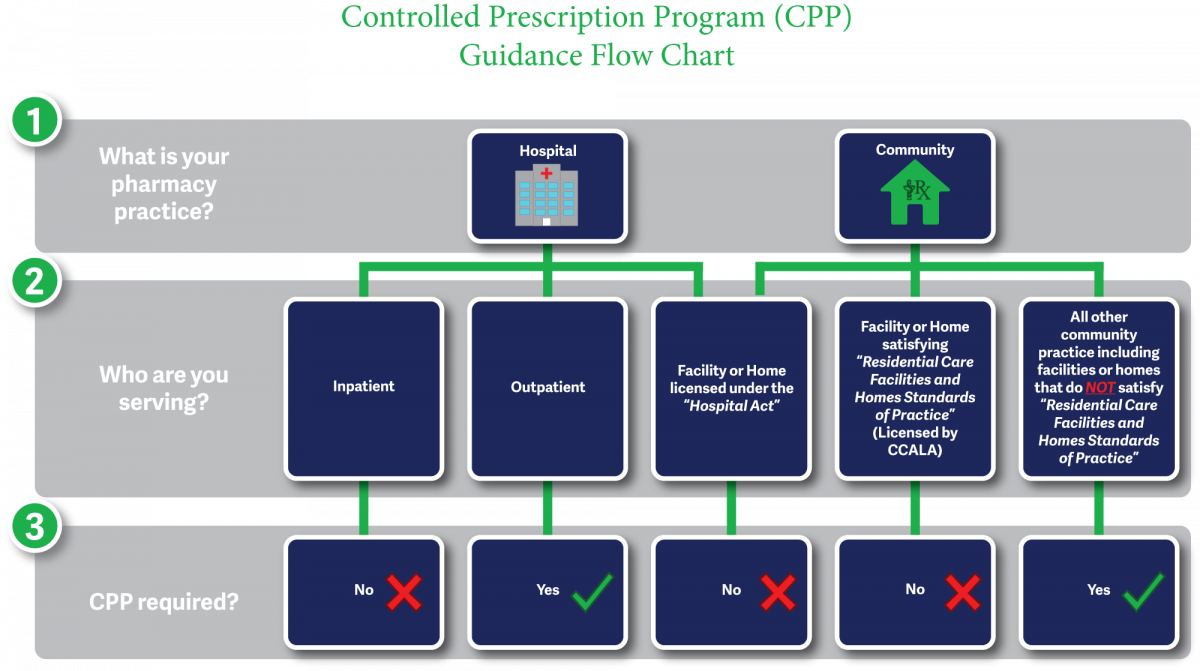PRP Insights: When Are CPP Forms Required for residential care facilities, hospices and hospitals
The Controlled Prescription Program (CPP) is a common staple in community pharmacies to help prevent forgeries and reduce the inappropriate prescribing of selected drugs. However, certain hospital, institutional, and long-term care settings do not require the use of CPP forms. This is where confusion around CPP requirements may arise.
Recently, the College’s practice support team has received many questions and requests for clarification on CPP requirements for pharmacies serving residential care facilities, hospices and hospitals. To help provide clarification on when the use of CPP forms is required, we’ve developed a Controlled Prescription Program Guidance Flow Chart.
When are CPP forms required for residential care facilities, hospices and hospitals?
CPP form requirements for pharmacies serving residential care facilities, hospices and hospitals depend on whether the facility satisfies specific requirements outlined in PODSA.
|
Based on current PODSA Bylaws Section 4(8): Subsection (6) (Requirement for CPP forms for certain drugs) does not apply to prescriptions written for (a) residents of a facility or home subject to the requirements of the Residential Care Facilities and Homes Standards of Practice, or (b) patients admitted to a hospital. |
To expand upon subsection 4(8)(a), to qualify for CPP exemption, facilities or homes served by community pharmacies must meet the “Residential Care Facilities and Homes Standards of Practice” INCLUDING licensure under the “Community Care and Assisted Living Act” (CCALA). Both of these requirements must be met for a facility or home to be exempt from the use of CPP forms.
We’ve mapped out what this looks like in practice with a Controlled Prescription Program Guidance Flow Chart.

- Practice Review Program
 Share
Share


